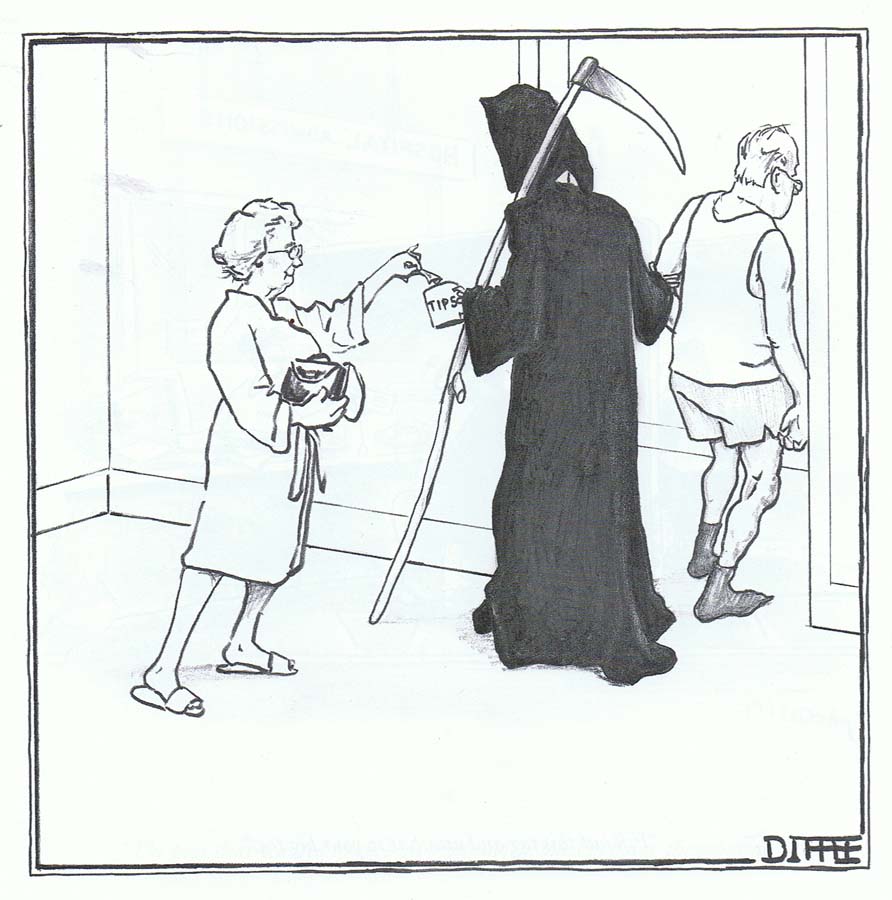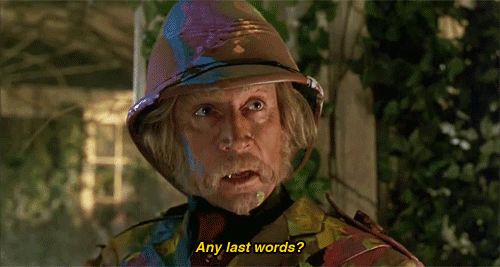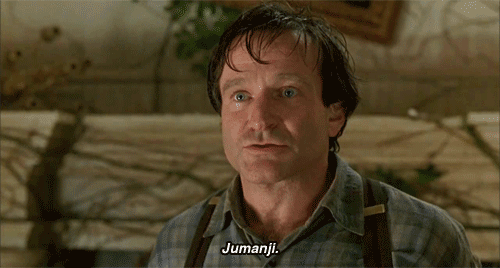Law
BRITAIN
Queen's Bench Divisional Court
February 23, 2016 Regina (Collins) v Secretary of State for Justice Before Sir Brian Leveson, President of the Queen's Bench Division and Mr Justice Cranston
Judgment January 15, 2016
The statutory provisions on self defence which allowed a householder to use such force against an intruder as he genuinely believed to be reasonable in the circumstances, provided it was not grossly disproportionate, were not incompatible with the positive obligation on the state to ensure that the intruder's right to life was protected by law pursuant to article 2 of the European Convention on Human Rights.
The Divisional Court of the Queen's Bench Division so held in dismissing an application for judicial review brought against the Secretary of State for Justice by the claimant, Denby Collins (a protected party acting by his father and litigation friend Peter Collins), who was seeking a declaration that the 'householder' defence under section 76 of the Criminal Justice and Immigration Act 2008, as amended by section 43 of the Crime and Courts Act 2013, was incompatible with article 2 of the Convention.
In the early hours of the morning the claimant entered a domestic home and was confronted by the householder who forced him into a headlock on the floor.
As a result of that restraint the claimant suffered serious injuries from which he was not expected to recover. The decision was made not to prosecute the householder following consideration of section 76 of the 2008 Act. Section 76, as amended, provides, so far as relevant: "Reasonable force for purposes of self-defence ... (3) The question whether the degree of force used ... was reasonable in the circumstances is to be decided by reference to the circumstances as [the defendant] believed them to be ... (5A) In a householder case, the degree of force used ... is not to be regarded as having been reasonable ... if it was grossly disproportionate in those circumstances."
Mr Paul Bowen, QC and Mr Malcolm Birdling for the claimant; Ms Clare Montgomery, QC and Mr Tom Little for the secretary of state. THE PRESIDENT said that the common law relating to self-defence required consideration of two elements. The first was a subjective element, namely whether the defendant genuinely believed that it was necessary to use force to defend himself.
The second was an element which was partly objective (whether the nature and degree of force used was reasonable in the circumstances) and partly subjective (on the basis that what was reasonable had to be tested against the circumstances as the defendant genuinely, even if mistakenly, believed them to be).
Section 76(5A) of the 2008 Act did not extend the ambit in law of the second self-defence limb but, properly construed, provided emphasis to the requirement to consider all the circumstances permitting a degree of force to be used on an intruder in householder cases which was reasonable in all the circumstances.
Presuming that the defendant genuinely believed that it was necessary to use force to defend himself, section 76(5A), read together with section 76(3) and the common law on self-defence, required two separate questions to be put to the jury in a householder case: (i) was the degree of force the defendant used grossly disproportionate in the circumstances as he believed them to be? If the answer was 'yes', he could not avail himself of self defence.
If 'no', then (ii) was the degree of force the defendant used nevertheless reasonable in the circumstances he believed them to be? If it was reasonable, he had a defence. If it was unreasonable, he did not. Whether it was or was not reasonable would depend on the particular facts and circumstances of the case.
On the plain words of section 76, a jury should consider those two questions disjunctively. The answer to the first question did not provide the answer to the second question.
As to compatibility of section 76(5A) with article 2 of the Convention, the ultimate question was whether the criminal law of England and Wales effectively deterred offences against the person in householder cases.
The starting point had to be the deterrent effect of the catalogue of offences against the person for which a householder using force against an intruder might be liable.
Murder, manslaughter and nonfatal offences against the person applied without distinction, in terms of the substantive definition of the offence, in householder cases.
Section 76(5A) served to exclude a householder's grossly disproportionate use of force from being reasonable. When read with section 76(6), which provided that in non-householder cases all disproportionate force was excluded from being reasonable, section 76(5A) could be seen to offer a discretionary area of judgment to the jury as to whether if the force was disproportionate, it was nevertheless reasonable in the circumstances.
The effect of section 76(5A) was not to give householders carte blanche in the degree of force they used against intruders in self-defence. A jury had ultimately to determine whether the householder's action was reasonable in the circumstances as he believed them to be. In that regard, the reasonableness limb of self-defence was compatible with article 2.
Mr Justice Cranston delivered a concurring judgment.

QUOTATIONS
I didn't attend the funeral, but I sent a nice letter saying I approved of it. (Mark Twain)
I have never killed a man, but I have read many obituaries with great pleasure. (Clarence Darrow)
Life is hard. Then you die. Then they throw dirt in your face. Then the worms eat you. Be grateful it happens in that order.
"I hope that after I die, people will say of me: "That guy sure owed me a lot of money.""
The bitterest tears shed over graves are for words left unsaid and deeds left undone.
If you were going to die soon and had only one phone call you could make, who would you call and what would you say? And why are you waiting?
Regret for the things we did can be tempered by time; it is regret for the things we did not do that is inconsolable
I blame myself for her death. I shot her.
When I die I want to go quietly in my sleep like my grandfather, not yelling and screaming like his passengers
I almost met Elvis once but the shovel broke
Not supposed to say anything about the dead unless it's good, so it's like "He's dead. Good"
"Keep not your roses for my cold dead brow
The way is lonely, let me feel them now."
Quotes about Death
ANECDOTES
Ben Johnson wanted to be buried Westminster Abbey so begged King Charles for 1sq ft - that's what he got - buried him standing up
Thailand has "heavenly paper" shops to cater for their belief that the dead need material things in the afterlife, but they don't have to be real - so you can buy cardboard mercedes benz, currency ($US500m for $45),fine clothes etc
Emperor Haile Sellassi of Ethiopa, killed in a coup, was buried head down in a long drop toilet; a ceremonial throne/toilet was erected above so that the victor could think about his victim at regular intervals
Restaurateur Tony Astle reckons he's going to be buried sitting in his Rolls Royce. His wife isn't so keen - she wants to be cremated. Astle said he's pointed out to her that there are 6 ashtrays in the Rolls
22 Nov 1963 not only JFK assassinated, but also Aldous Huxley and C.S.Lewis died
Economist mag ran obit for Japanese guy who died 2010, aged 93, who survived both atomic bombs. He was working in Hiroshima when first dropped, suffered burns to upper body and face, ruptured eardrums and burnt off all hair. Went home to Nagasaki, where they bombed him again.
Elephants in game reserve in Kenya - when matriarch of one of families bitten by a snake. members of another family tried to help support and comfort her. When she died, elephants from four separate families on reserve came to mourn over her body. BUT limits of animal compassion - none of others adopted her orphan 6 month old unweaned calf, and she starved to death
The Body Farm in Knoxville Tennessee - a forensic testing ground to learn how corpses decompose in various situations - people will their bodies to the farm and they are put in car boots, submerged in water, half buried in different soils etc to see what sequence of events take place - which insects and beetles at which times, how long for the flesh to to rot etc. (What do you want to happen to your body?)
Billy Connolly - Catholic bishop in Ireland about 150 years ago given a new cemetery by government - insisted that the graves be (religiously) segregated and that an underground wall separate the Catholics and Protestants ("what did he think they were going to do?")
The US is still paying war pensions from the Civil War which fought 1860 to 1865. Last American Civil War veteran widow. William Cattrell was 16 in 1863 when enlisted in Confederate Army. In 1934 aged 86, he married Mandie, then 19 (she was hired to clean house for $12 month, then he said if she was going to live in house they would have to get married) He died after falling off a horse in 1937 - she's still alive in her 90s, and still getting a war pension from the US Government
Elsie Poncher decided reluctantly in August to go back on a promise she had made to her late husband. Richard Poncher had purchased a crypt (for himself) just above the one in which the body of Marilyn Monroe rests in a Los Angeles memorial park, but Elsie now needs money and thus offered the crypt for sale in August, planning to move Richard to a less prominent place. Richard had been assured by Elsie that he could spend eternity lying face down "over Marilyn."
John E. Holden, alias Jack, took the Deep Six, Monday, May 27, 2013 at the Willow Valley Retirement Community after a life filled with endless laughter and debauchery....he was awarded the Distinguished Flying Cross for his combat activities, the Air Medal for action in Okinawa in 1945 and the Distinguished Fleeing Cross for avoiding numerous women who were seeking child support under unproven circumstances.... Jack was widowed ten years ago after sixty-one years of marriage to Elaine Ewing Holden. He has had a number of other wives recently, none of which were his. (NB he wrote it himself)
On-line memorials make good opportunity for wide community to come together, but not without problems. Legacy.com carries death notices for almost all 2.4m Americans who die each year. Has had to employ 45 full-time moderators to screen out vindictive comments. "Reading the obits, he sounded like a great father. Signed his son Peter."!
Varying attitudes to inheritance - some think it is a right, and traditional parents think they have an obligation to leave as much as possible to their heirs. Others take attitude that they earned it and so joke about spending their kid's inheritance.
When it comes to legacies, the water can be muddied by loans and gifts given during person's lifetime. The children who received the help will never remember and the siblings will never forget
LT letter which suggested papers should print preObits when people turn 65, so that they could read the judgements of their peers, as opposed to waiting and hoping you could read the full version
Finalthoughts.com - you can email people after death (which reminds me of story I heard about guy who shot himself; then for next 2 weeks his widow kept finding these accusatory notes around the house - so unfair, she reckoned, because she had no right of reply)
Flashy dentist in London early 1800's - wife tried to repay him for a spiteful marriage with a spiteful will, leaving her fortune to a distant relative, "the minute I'm dead and buried" so of course he didn't bury her (had corpse preserved and for many years exhibited it in his front room - finally destroyed in WW2 bombing of London)
Anecdotes about Death
ARTICLES
That's all, Folks! reads the inscription on the headstone of Mel Blanc, the voice of Bugs Bunny. Spike Milligan's grave memorably insists: I told you I was ill. Distinct from the one-liners are the exhortatory epitaphs: Here lies the body of Jonathan Swift... where savage indignation can tear his heart no more. Go, traveller, and if you can, imitate one who with his utmost strength protected liberty. W.B.Yeats considered Swift's the greatest epitaph in history. Epitaphs
Elisabeth Kubler-Ross: 2 ideas, 1 right and 1 wrong. Her argument was that patients often knew that they were dying, and preferred to have others acknowledge their situation: The patient is in the process of losing everything and everybody he loves. If he is allowed to express his sorrow he will find a final acceptance much easier. But also she posited that the dying underwent five stages: denial, anger, bargaining, depression, and acceptance. The trouble is that it turns out largely to be a fiction, based more on anecdotal observation than empirical evidence. A process, not stages
Some unusual wills, such as $500,000 to women who have most babies in next decade 4 women shared it with 9 babies each
Autopsies show that doctors still misdiagnose fatal diseases about a third of the time 20 things you didn't know
Today you get two lives Life Expectancy
More Articles on Death
BOOKS
Anything for him but mindless good taste. "I can hear him whispering in my ear last night as I was writing this. 'All right Cleese,' he was saying 'you're very proud of being the first person to say shit on British television. If this service is really for me, then I want you to be the first person ever at a British memorial service to say fuck." Flipnosis
Queenan had an apothesis with a death scare - immediately started worrying about all the things he hadn't done: learning to fly, do tai chi etc, and where his ashes should be scattered (the Seine got the tick) Then after his cancer scare over, he realized how selfish his reaction was - rather than try to make the world a better place, actually embarked on a mad binge of self-aggrandizement. Balsamic Dreams
Molecule for molecule, hydrogen sulfide is as lethal as cyanide, which is probably why we have evolved such a sensitivity to it. The concentration in a fart is between 1 and 3 parts per million. Harmless. But at a 1000 parts per million - which you can get in pig manure pits and septic tanks - it causes respiratory paralysis and suffocation. The problem is that as soon as the concentration goes over 150 parts per million, your olfactory nerves are overwhelmed and paralyzed, and you no longer detect the warning smell. So co-workers or family rush into the manure pit to rescue the fallen, in a chain of death. Gulp: Adventures on the Alimentary Canal
In 16th Century London, 1/5 children died before 1st birthday, and another 1/5 died before 5th. Even until 10, death rates high. From 10 to 40, people were relatively healthy, but then death cd come knocking at any stage. Only half the population lived to 25.
Shock of Gray
At the end of the day there is no dignified end for our bodies - whether decompose in a grave, cremated in a furnace or freeze dried and minced. Author used to think that burial at sea was a quick and dignified exit, until a conversation with a marine biologist who explained how fast crabs and other scavengers tear the flesh off anything that hits the sea bed Stiff
When my father died, they turned out his pockets, and all he had was three shillings and eightpence - after fifty-six years of hard manual labour. As I walked out of that ward I determined that my family wd never be poor again. Michael Caine autobiography
Erroneous idea that if fat people suddenly get thin they'll live much longer is same as thinking a bald man will live longer if give him a hair transplant (bald men have lower life expectancy, possibly because of extra testosterone) The Big Fat Conspiracy
Nine day friends: hospice volunteers support dying patients. The patients stay an average of 9 days, then they die. They come off all therapy except painkillers, and eat and drink what they like. The Undead
More Books about Death
OPINIONS - FORUMS AND LETTERS TO THE EDITOR
Executions, dead bodies, end of life care, assisted death, talking to the dead ...
Death Letters
POEMS
The poetry of modern life
Don't strew me with roses after I'm dead.
When Death claims the light of my brow,
No flowers of life will cheer me: instead
You may give me my roses now!
More Poems About Death
LIMERICKS
My father he fills me with dread
When he sits on the foot of my bed;
I don't mind that he speaks
In gibbers & squeaks
But for seventeen years he's been dead
More Limericks About Death
SONGS
I'm not scared of dying,
And I don't really care.
If it's peace you find in dying,
Well then let the time be near.
More Songs About Death
.... more SONGS ....
You are dead. Everything goes black. The credits roll. What song plays?
Reddit thread
IMAGES






More Death Images
CARTOONS


More Death Cartoons
FAMOUS LAST WORDS


More Last Words and Tributes
MAD MAGAZINE
Funerals